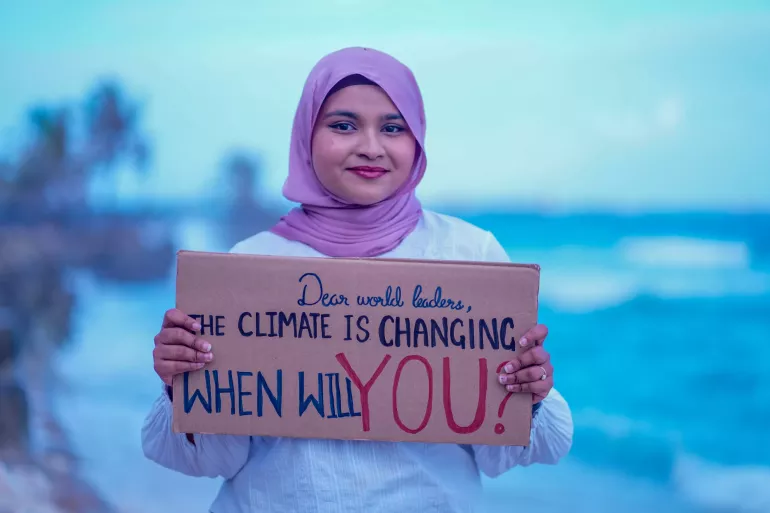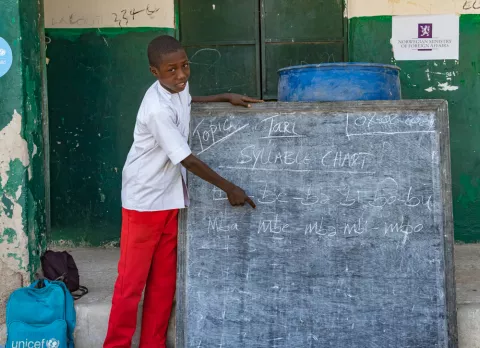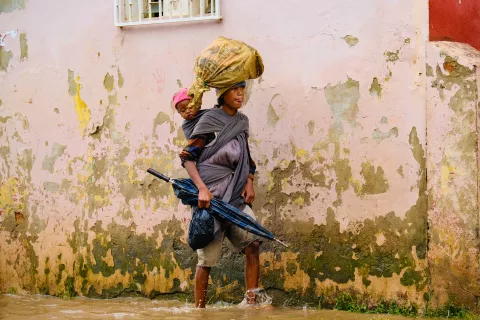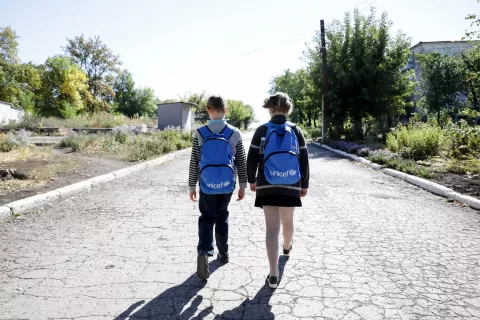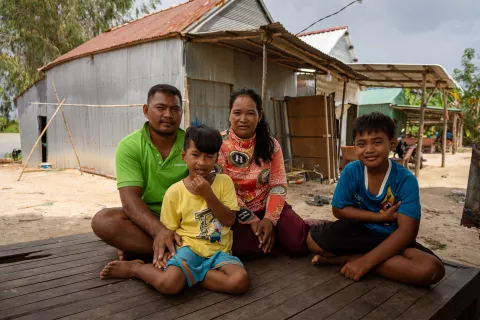In 2023 alone, millions of people were displaced or died due to extreme weather events. Women and girls in climate hotspots disproportionally suffer the effects of climate impacts, pushing more girls out of school and placing them at greater risk of child marriage, violence, and exploitation.
Climate-related disasters disrupt the education of 40 million children each year, and marginalized young people are being left behind without the skills they need to adapt to the new realities of climate change. The time to act is now. Join us in championing the planet every day and creating a brighter, more sustainable future for all.
On Earth Day, UNICEF is calling on governments, businesses, and communities to take urgent action against the climate crisis and protect the children who are already suffering its worst effects.
Making education systems climate-resilient: Global progress
Governments worldwide are taking action to make sure that children have access to climate education, that teachers are supported to teach about climate and sustainability, and that climate-related events do not disrupt children’s education.
However, a rapid survey of UNICEF offices in 94 low- and middle-income countries shows inconsistent progress in mainstreaming climate education. Among the surveyed UNICEF country offices, only 30 per cent reported government action on greening education in 2023, and only 18 per cent have included climate change education in their Education Sector Plan. While this indicates some progress in policymaking, there are significant gaps in implementation. A mere 8 percent of countries report providing climate education to at least 70 percent of children and offering professional development opportunities to teachers in climate education.
It is alarming to note that 40 of the surveyed countries are assessed as having high or extremely high risk of children's exposure and vulnerability to the impacts of climate change, yet only a third of these countries reported concrete government action to advance greening education.
Across the globe, children and youth are calling for access to quality climate education. However, creating a favorable policy environment for climate education is just the first step. To make this a reality, we need significant investments. Shockingly, only 7 per cent of countries surveyed reported climate finance investments in the education sector. This is simply not enough. Education is key for climate adaptation and resilience, yet globally, education-specific projects receive negligible funding. We must act now to address the climate finance gap for children and youth and make quality climate education accessible to all.
Young people: Not just victims but climate action leaders
Children and young people are investing their time and energy in taking climate action to make our world greener and more sustainable. Let us take inspiration from these children and young people who are championing our planet every day.
Francisco Vera
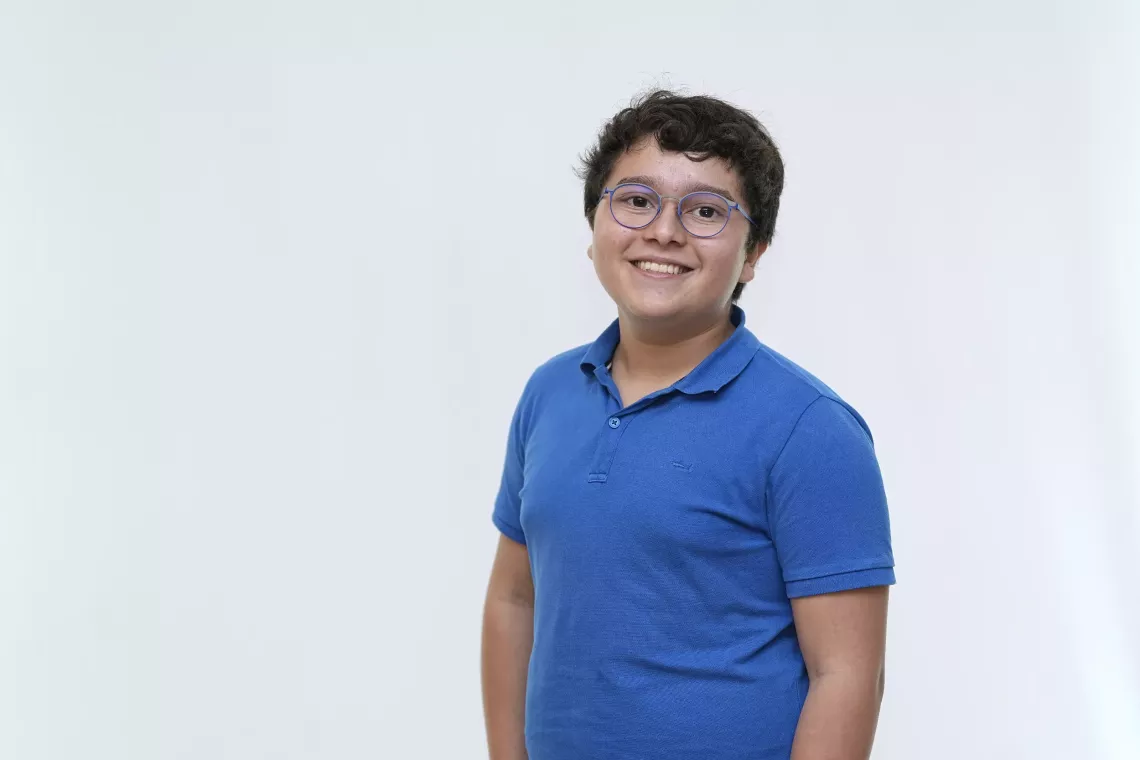
I am 14 years old, and I was born in Colombia. I live in Spain and I am an activist and defender of the human right to a healthy, clean, and dignified environment. I lead a movement of children and adolescents who mobilize for climate justice and peace with nature. I am also a UNICEF Youth Climate Action Advocate and a speaker on various issues. When I do advocacy and climate education, I seek that governments generate policies for life, that they think that their actions have an impact on people's daily lives, on their dreams, and on the possibility of living in decent conditions.
Tina
My name is Tina from Egypt, and if you're reading this, you're probably as eco-curious as I am! I am part of a youth collective. We wanted to do more than just catch people's attention. We wanted to change our mindsets. So, we brainstormed and launched "Us and Climate Change." The plan was to equip teachers to be climate mentors, giving them the low-down on the climate crisis so they can inspire the next generation. Our ultimate dream? A world where we can freely drink clean water, savour healthy food and take in pure, unadulterated air.
Afroza
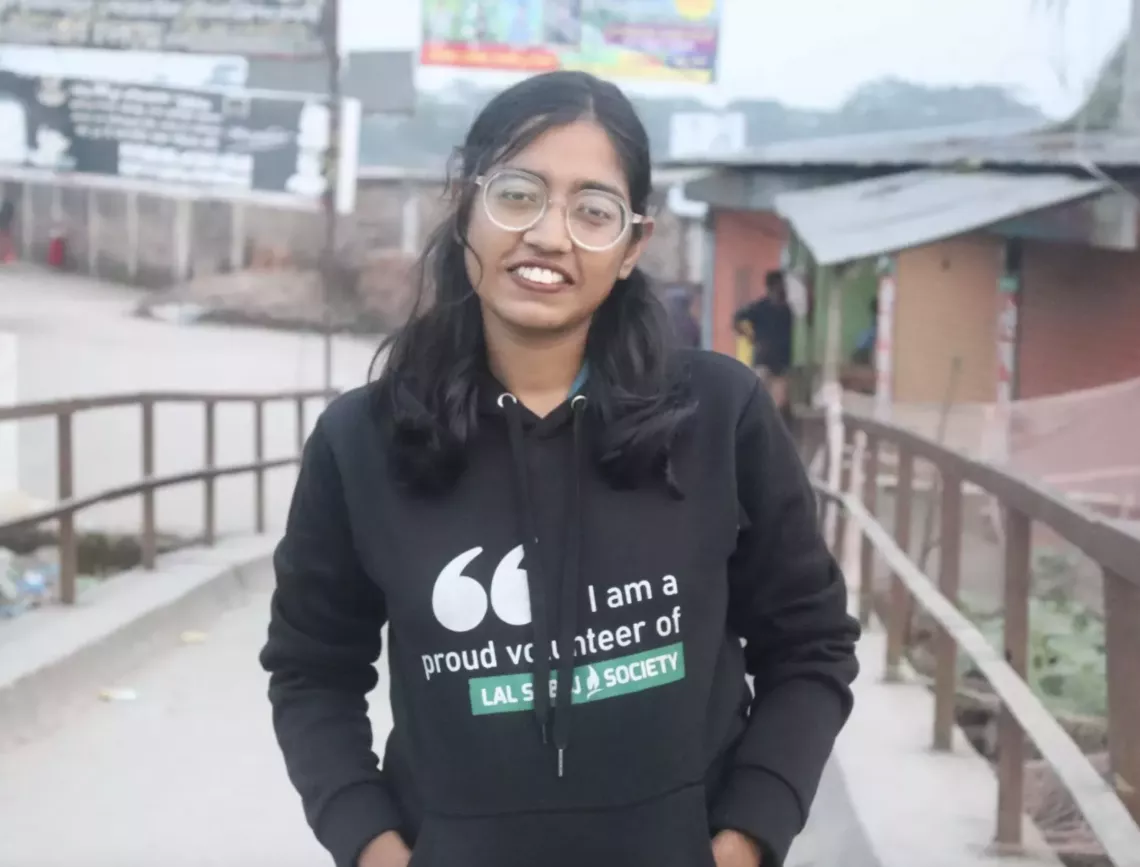
I am an 18-year-old youth leader from Bangladesh. In our community people face a lot of problems like floods and storms, losing their homes and livelihoods. I am actively involved in youth development and community engagement. I collaborate with fellow youths to develop their skills and tackle pressing issues such as climate change. In partnership with UNICEF, we're conducting various community and school-based initiatives to equip vulnerable communities with the knowledge and tools to adapt to climate change. We’ve reached over 5,000 individuals, empowering them to build resilient futures!
UNICEF, as an organization with a mandate to protect future generations, is stepping up its climate ambitions and we are looking to global leaders to take decisive action to urgently adapt education systems to the new climate reality.
Ingrid Sanchez Tapia is a Senior Education Adviser (Climate) at UNICEF HQ in New York.

